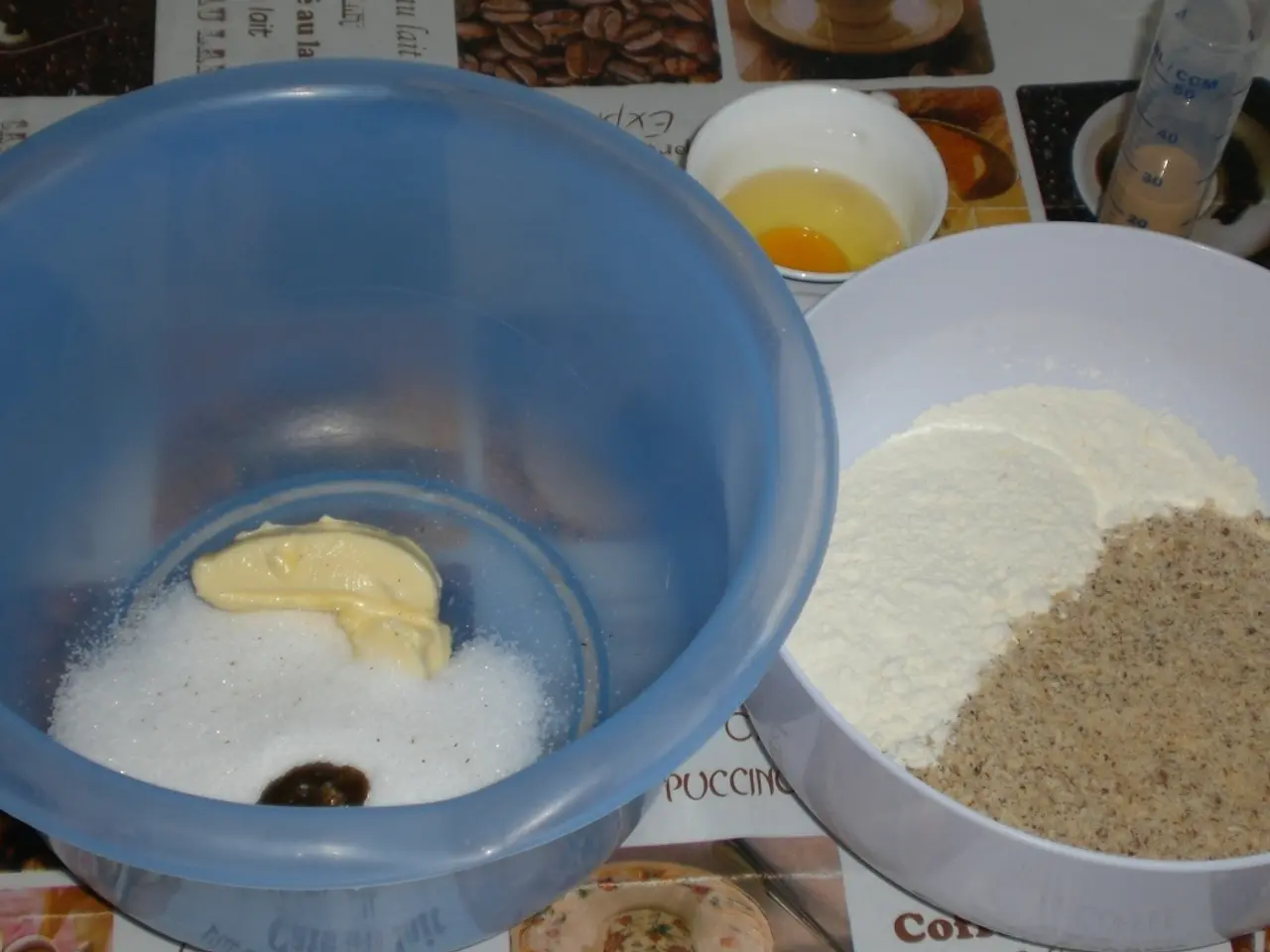Probiotics and their effectiveness in treating ulcerative colitis: An examination
Take a stroll through your gut, and you'll find it teeming with 200-1,000 species of bacteria. Some of these microscopic critters are helpful, while others are not so friendly. This intricate ecosystem, known as the gut microbiota or gut flora, plays a crucial role in maintaining your overall health. But can these tiny bugs help manage symptoms of ulcerative colitis (UC), a type of inflammatory bowel disease? Let's explore!
Probiotics, live bacteria that can help balance the gut microbiota, occur naturally in some foods and are also available as supplements. There's mounting evidence that probiotics may assist with a range of diseases, including UC.
The gut microbiota of someone with UC is different from a healthy one. UC is a chronic gastrointestinal disease that involves inflammation in the gut, leading to symptoms like abdominal pain, bloating, diarrhea, and bleeding from the rectum. In theory, increasing the number of good bacteria might help manage UC symptoms.
Some researchers believe that targeting the intestinal mucus could help manage UC symptoms. Genetic factors also play a role. One theory is that a specific genetic feature could allow "bad" bacteria to trigger a lasting inflammatory response in the mucus of the gut. In theory, changing the bacteria could make the gut flora less aggressive - less likely to trigger this response - and may also reduce UC symptoms.
While it's not yet clear whether foods and supplements containing probiotics can help manage UC, some scientists are looking into the possibility of developing probiotics as a drug treatment for the condition. In the meantime, some people with UC include probiotics in their diets to ease symptoms.
Why use probiotics for UC? Probiotics are similar or identical to helpful bacteria in the intestines. They can improve UC symptoms by helping balance the gut flora and preventing some types of bacteria from triggering and maintaining an inflammatory response in the intestines. But remember, it's important to consult a doctor before using probiotics to treat UC.
Probiotics can be found in several fermented foods like yogurt, kefir, kimchi, and sauerkraut, as well as in supplements. When it comes to supplements, common options include various species of Lactobacillus and Bifidobacterium bacteria. It's important to remember that different types of probiotics can have different effects.
The Food and Drug Administration (FDA) does not regulate supplements or probiotics, so manufacturers can vary ingredients, and marketing claims might not be based on scientific evidence. Research suppliers thoroughly to ensure they sell reliable products.
If you're interested in trying probiotics for UC, consult a doctor first. They can provide guidance about which type to try, as some types may help, but others may be ineffective or possibly harmful. A doctor can also explain whether a suitable type and dose of probiotic is available and, if so, where to find it.
While probiotics may offer potential benefits, it's important to manage expectations. Most probiotics will not reach the gut, and a person needs a specific type of probiotic to meet specific health needs. It's unlikely that a food or supplement will happen to contain the right type. Furthermore, probiotics are just one part of a comprehensive UC treatment plan that may include dietary changes, medications, and regular check-ups with a healthcare provider.
Here's to a healthier gut and improved quality of life for those battling UC! 🥛 🥒 🌱
- The intricate ecosystem within a person's gut, identified as the gut microbiota or gut flora, consists of approximately 200-1,000 species of bacteria.
- Probiotics, live bacteria that help balance the gut microbiota, occur naturally in some foods and are available as supplements.
- Some researchers theorize that targeting the intestinal mucus could potentially manage UC symptoms, a type of inflammatory bowel disease.
- Genetic factors also play a role in UC, with one theory suggesting a specific genetic feature could allow harmful bacteria to trigger a lasting inflammatory response in the gut mucus.
- Probiotics, being similar or identical to beneficial bacteria in the intestines, can improve UC symptoms by helping balance the gut flora and preventing certain bacteria from triggering an inflammatory response in the intestines.
- The Food and Drug Administration (FDA) does not regulate supplements or probiotics, so manufacturers can vary ingredients, and marketing claims may not be based on scientific evidence.
- Probiotics can be found in several fermented foods, such as yogurt, kefir, kimchi, and sauerkraut, as well as in supplements, including various species of Lactobacillus and Bifidobacterium bacteria.
- Changing the gut bacteria could make the gut flora less aggressive, reducing UC symptoms, although it's not yet clear whether foods and supplements containing probiotics can manage UC.
- Some scientists are investigating the possibility of developing probiotics as a drug treatment for UC, while some UC patients include probiotics in their diets to ease symptoms.
- Consult a doctor before using probiotics to treat UC, as they can provide guidance about which type to try and explain whether a suitable type and dose are available.
- Probiotics are just one part of a comprehensive UC treatment plan that may include dietary changes, medications, and regular check-ups with a healthcare provider.
- Expectations for probiotics should be managed, as most probiotics will not reach the gut, and a specific type of probiotic is needed to meet specific health needs.







